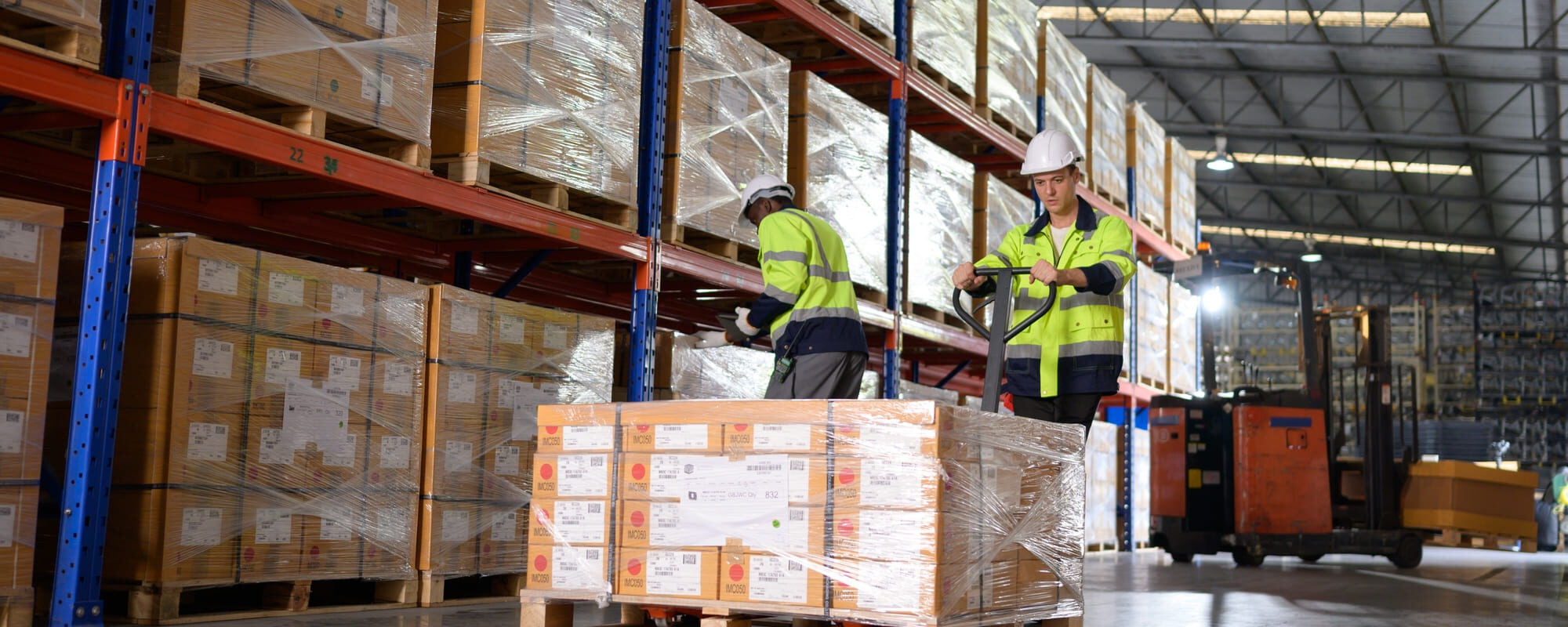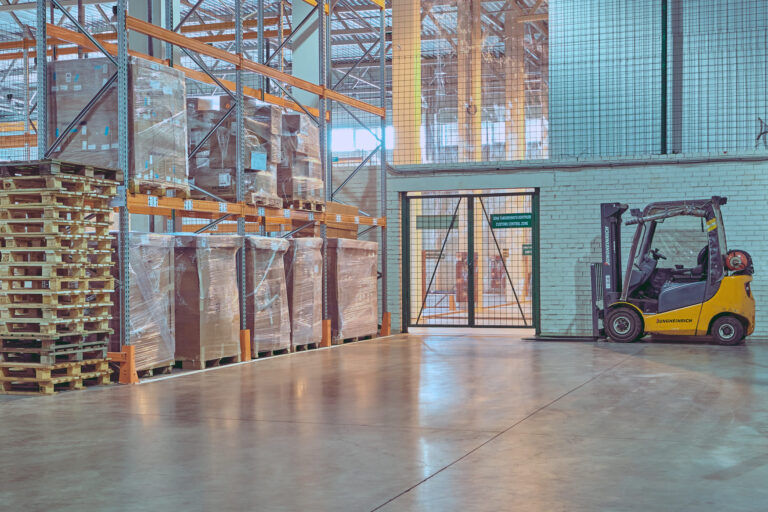Public Warehouse: A Comprehensive Guide

Public warehouses are third-party storage facilities where multiple companies can rent space and services on a flexible basis. In other words, a public warehouse (or public warehousing facility) is a large, multi-client warehouse owned by an independent provider, not by a single company. Businesses facing seasonal surges or fluctuating inventory needs often use public warehousing to avoid the high capital cost of building their own warehouse. Instead of investing in property and equipment, they pay only for the space and services they actually use.
Types of Public Warehouses
Public warehouses come in various forms, each designed to serve specific logistics and storage needs. Here are some key types:
- Distribution Centers: These warehouses are crucial in the supply chain for short-term storage and rapid order fulfillment. They cater to businesses that require fast-moving inventory, ensuring products are efficiently received, sorted, and shipped to retailers or consumers.
- Consolidation Warehouses: These facilities collect shipments from multiple suppliers, combining them into larger loads before dispatching them to final destinations. This setup minimizes shipping costs and improves logistical efficiency for businesses that handle small but frequent shipments.
- Cross-Dock Warehouses: These warehouses specialize in transferring goods directly from inbound to outbound transportation without prolonged storage. They facilitate quick turnaround times, reducing the need for large storage areas and expediting shipments to customers.
- Climate-Controlled Warehouses: Designed for temperature-sensitive goods, these warehouses provide controlled environments for items such as food, pharmaceuticals, electronics, and artwork. They prevent spoilage and ensure compliance with industry regulations.
- Hazardous Materials Warehouses: These facilities are built to safely store chemicals, flammable substances, and other regulated materials. They comply with strict safety standards and require specialized handling procedures to prevent accidents and contamination.
- Bonded Warehouses: These storage facilities hold imported goods until customs duties are paid. Businesses benefit from deferred taxation, allowing them to sell products and generate revenue before paying import fees.
- Smart Warehouses: Utilizing automation, robotics, and IoT technology, smart warehouses enhance efficiency and accuracy in inventory management. These high-tech facilities reduce human labor costs and improve order fulfillment speeds.
Key Considerations When Choosing a Public Warehouse Provider
Selecting the right public warehouse provider is a crucial step in optimizing logistics and enhancing supply chain management. Here are key factors to consider:
- Location and Accessibility
The warehouse location plays a pivotal role in reducing transportation costs and delivery times. Consider:- Proximity to suppliers and customers
- Access to highways, ports, and rail networks
- Availability of last-mile delivery services
- Storage Capacity and Facility Features
Ensure the warehouse has the infrastructure to meet your needs, including:- Ample storage space and scalability options
- Specialized storage for temperature-sensitive or oversized goods
- Efficient racking and shelving systems
- Technology and Inventory Management
Advanced technology can enhance warehouse efficiency. Look for:- Warehouse Management System (WMS) for real-time tracking
- Automated inventory management to minimize errors
- Integration with your existing supply chain systems
- Value-Added Services
Consider whether the provider offers additional services such as:- Order fulfillment and distribution
- Kitting, labeling, and repackaging
- Cross-docking and transloading for streamlined operations
- Cost Structure and Flexibility
Evaluate the warehouse’s pricing models:- Pay-as-you-go vs. fixed contract pricing
- Options for scalability to accommodate growth
- Potential hidden fees like handling charges
- Compliance and Security
Ensure the facility complies with industry regulations and maintains strict security measures, including:- Certifications for handling specific goods (e.g., food-grade or hazardous materials)
- 24/7 security monitoring and access control
- Insurance coverage for stored inventory
- Reputation and Reliability
Research the warehouse provider’s track record by checking:- Customer reviews and testimonials
- Case studies of businesses served
- Industry experience and expertise
Comparing Public and Private Warehouses
Warehousing solutions differ in terms of cost, control, and suitability for various business models. Here’s a breakdown:
| Feature | Public Warehouses | Private Warehouses |
| Ownership | Third-party logistics providers | Owned by individual companies |
| Cost | Lower upfront costs; pay-per-use model | High capital investment and maintenance costs |
| Flexibility | High scalability; adaptable to demand changes | Limited to the company’s needs |
| Control | Less control over operations | Full control over warehouse operations |
| Suitability | Best for businesses with fluctuating storage needs | Ideal for companies with large, stable inventory |
What benefits do public warehouses offer for small businesses?
Public warehouses are particularly attractive to small and growing businesses because they offer:
- Ability to focus on core business – By outsourcing warehousing, small companies can concentrate on product development and marketing rather than logistics.
- Cost savings and reduced capital requirements – Small businesses avoid the high capital costs of building or leasing their own warehouse. Public warehouses provide shared space, so companies pay only for the space and services they use. Maintenance, security and utilities are handled by the provider.
- Flexibility and scalability – Space can be increased or decreased month‑to‑month, allowing businesses to scale storage up or down as demand changes. There is no long‑term commitment, which suits seasonal or fluctuating operations.
- Access to professional expertise and technology – Public warehouses are run by logistics professionals who handle storage, distribution and inventory management. Many use warehouse management systems (WMS) that provide real‑time inventory visibility and shipment tracking.
- Strategic location – Public warehouses are often located near major transportation hubs (ports, airports, highways), allowing faster delivery and lower transportation costs.
- Risk reduction – Facilities typically have security systems, climate control and fire protection, reducing the risk of damage or loss.
What services do public warehouse operators typically offer?
Public warehousing is more than just storage. Typical services include:
- Receiving and shipping/handling – Inbound receiving, inspection and outbound shipping services. Handling fees may be charged for pallet or carton movements.
- Storage management – Space is rented per pallet, square foot or cubic foot; inventory is tracked and managed with WMS software.
- Cross‑docking and freight consolidation – Warehouses can move products directly from incoming trucks to outgoing transport, minimizing storage, and consolidate freight from multiple clients.
- Transportation and freight services – Many public warehouses provide in‑house trucking, rail access or arrange less‑than‑truckload (LTL) and full‑truckload (FTL) shipments.
- Value‑added services – Leading operators offer kitting and assembly, labeling and repackaging, light manufacturing, quality inspection, returns processing and cross‑docking.
- Inventory management and technology – Perpetual inventory tracking, lot/serial control, FIFO/FEFO management, cycle counting and inventory reporting; WMS integration, web portals, EDI and real‑time visibility.
- Import/export logistics – Assistance with customs documentation, drayage and international shipping.
These services enable businesses to outsource many supply‑chain activities without investing in their own infrastructure.
How are public warehousing pricing and fees calculated?
Public warehousing costs are typically activity‑based and depend on the specific services used. Common cost components and pricing structures include:
- Storage fees – Charged for occupying space, usually per pallet, square foot or cubic foot. For example, one study reported average U.S. storage fees of about $14.58 per pallet per month and $0.495 per cubic foot per month. Storage fees may vary by region, warehouse type and whether special conditions (e.g., temperature control) are required.
- Handling and transaction fees – Charges for receiving, shipping, and order processing. Handling may be billed per pallet, per carton or on an hourly basis. Outbound pick‑and‑pack fees are often charged per order; for instance, a sample pricing scenario estimated $1.50 per order for pick‑and‑pack in a 3PL warehouse.
- Inbound receiving fees – Cover inspection, counting and labeling. Billing can be by pallet, carton, unit or hourly.
- Value‑added service fees – Costs for kitting, packaging, labeling, returns processing or other special handling.
- Account or administrative fees – Flat monthly fees for account management and customer service.
- Technology fees – Charges for access to WMS, EDI or customized reporting.
Providers use different pricing models: activity‑based pricing (detailed charges for each activity), simplified rate structures (bundled services) and hybrid models. Customers with larger or more consistent volumes may receive tiered discounts or committed‑capacity rates. A 3PL pricing example shows how costs might be broken down: storage ($18 per pallet/month for 150 pallets), inbound handling ($5 per pallet), outbound pick‑and‑pack ($1.50 per order), optional labeling, plus a flat account fee.
Choosing the Right Public Warehouse
Public warehousing provides shared storage and logistics services, allowing companies to avoid large capital investments and pay only for what they use. It offers flexibility, professional expertise and access to strategic locations, but gives up some operational control compared with private warehousing. Typical services include receiving and shipping, inventory management, cross‑docking, transportation, and various value‑added services. Pricing is activity‑based and depends on storage, handling, value‑added services and technology fees. To choose a warehouse location, analyze logistics networks, transportation access, labor availability and the provider’s capabilities and stability. These considerations will help businesses, especially small ones, leverage public warehousing effectively.
Frequently Asked Questions (FAQ) – OLIMP Warehousing
Q: How should I choose the right public warehouse location for distribution?
Selecting a public warehouse is a strategic decision. Key considerations include:
Conduct a location analysis – Evaluate multiple geographic areas instead of automatically selecting a familiar city. Use site‑selection tools to identify locations that reduce transit times to your customers.
Transportation access and infrastructure – Assess proximity to major transportation arteries (highways, ports, railways) and evaluate road conditions, traffic patterns and drayage costs. Good access improves delivery times and reduces transportation costs.
Proximity to customers and suppliers – Warehouses located near major customer bases or suppliers can reduce lead times and shipping costs. Determine where most of your products are shipped (e.g., 80 % of demand) and select a warehouse accordingly.
Workforce availability and costs – Analyze local demographics to ensure a skilled labor pool is available at a sustainable wage. Workforce shortages or high wages can increase operating costs.
Facility capacity and scalability – Ensure the warehouse has room to expand as your business grows and can accommodate additional space requirements. Ask about value‑added capabilities such as kitting or reverse logistics.
Systems capability and technology – The warehouse should offer the WMS and system integrations you require. Real‑time inventory visibility and order management integration are critical for modern distribution.
Network reach and provider stability – Consider a provider with multiple locations or global networks if you plan to expand into new markets. Evaluate the warehouse’s financial stability and operational performance and obtain references.
Visit the facility and meet management – Site visits allow you to assess cleanliness, security and operational procedures. Meeting managers provides insight into performance metrics and company culture.
By carefully analyzing these factors, you can select a public warehouse that supports your distribution strategy, meets service requirements and offers room to grow.
You may be interested in

Bonded Warehousing Solutions: Reduce Duties & Streamline Imports
Bonded warehousing solutions allow importers to store goods without upfront duty payments, effectively creating duty-free storage that boosts cash flow and streamlines the import process. By using a bonded warehouse – a secure facility under customs supervision – companies can defer taxes and tariffs on imported goods until those goods are released for domestic sale. […]

Essential Guide to Industrial Warehousing: Key Features, Technologies & Challenges
Industrial warehousing plays a pivotal role in the global supply chain, ensuring the efficient storage, management, and distribution of goods. In the broader transportation and warehousing industry, millions of people are employed to keep products moving (about 6.6 million in the U.S. as of mid-2024). North America (including the USA, Canada, and Mexico) similarly relies […]

Inventory Overflow Storage
The peak commerce season is approaching and warehouses are being stocked with extra products. This surge in inventory can lead to warehouse overflow, or when the warehouse reaches its capacity to store merchandise efficiently. Learn to manage overflow storage and be prepared for the holiday season. What is inventory overflow? Inventory overflow occurs when the […]
Ready to streamline your warehousing needs?
Request a quote today and discover how OLIMP's tailored solutions can optimize your operations